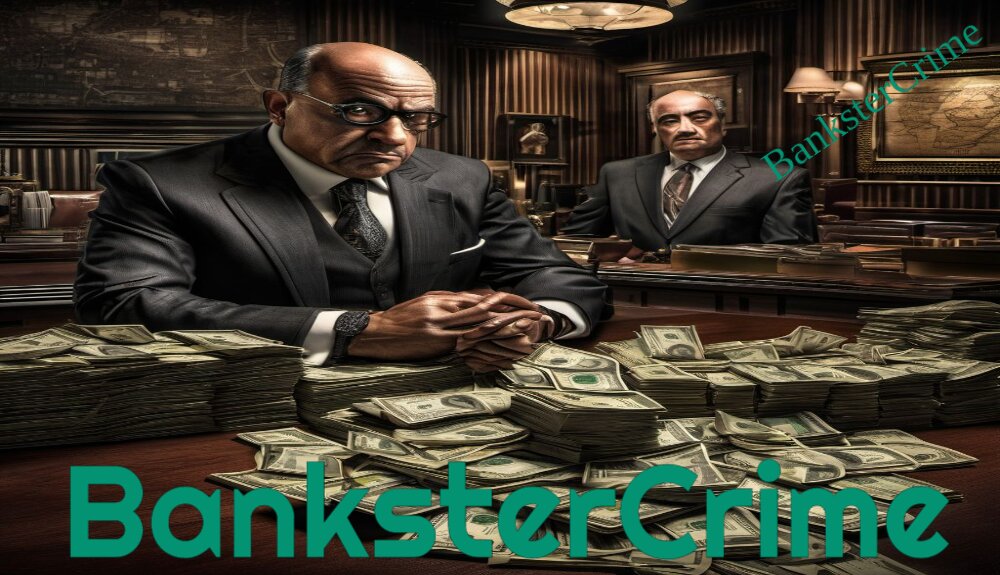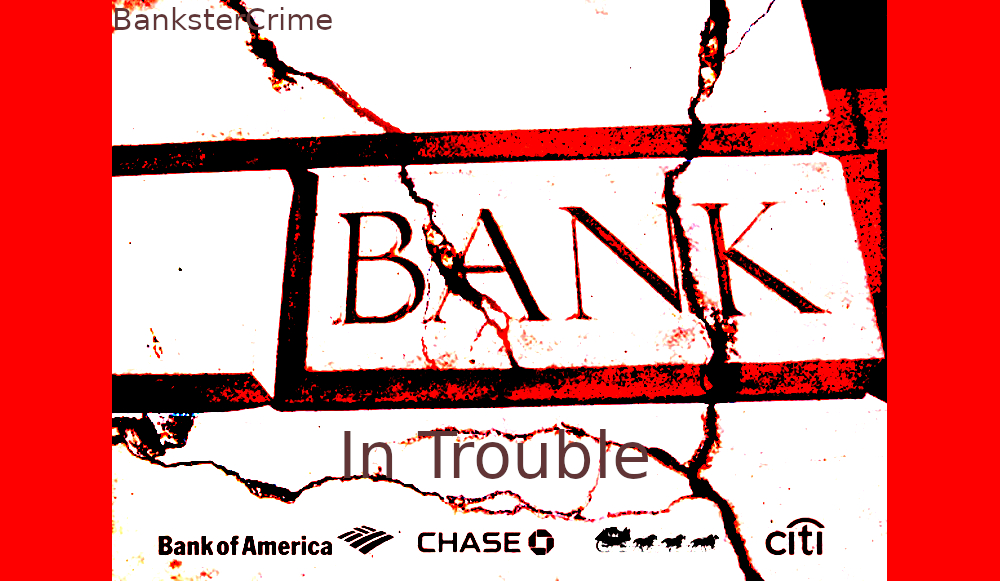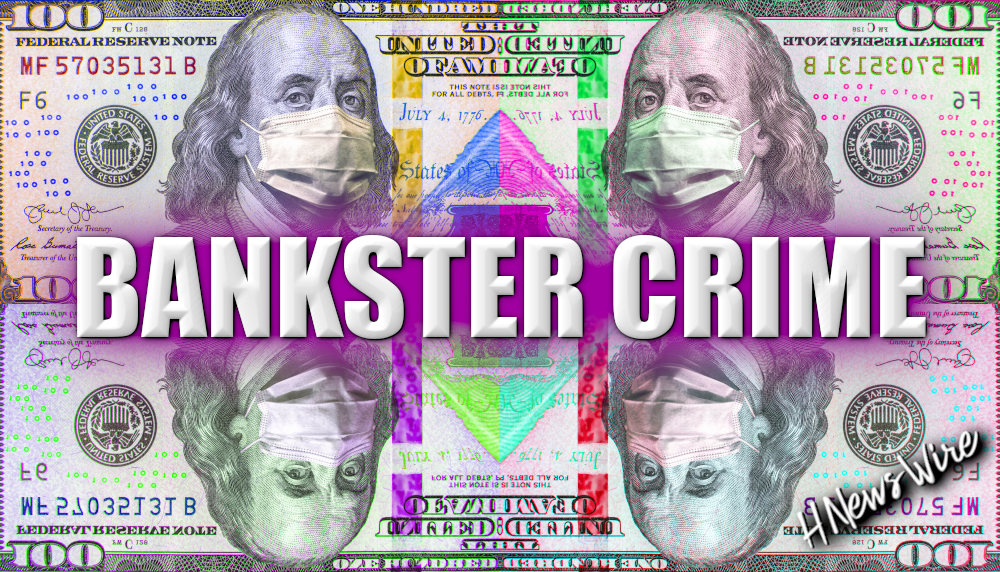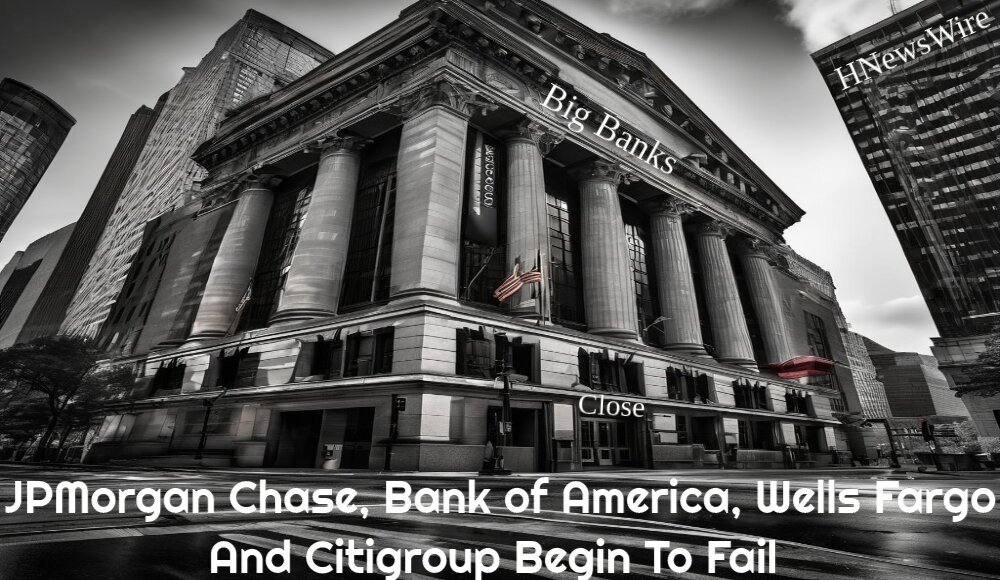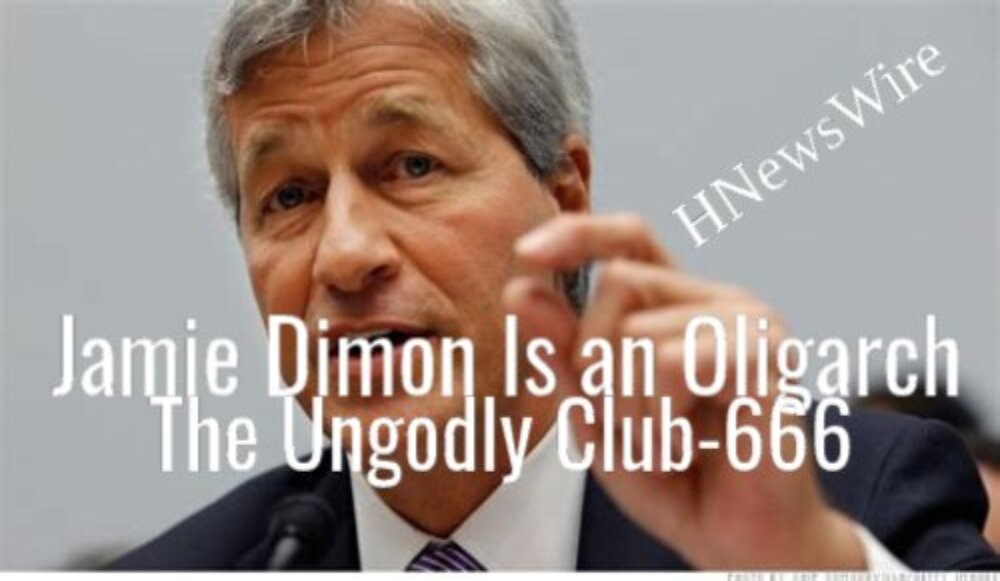Jamie Dimon Craters Bank Stocks on Friday with Plans to Sell One Million Shares of JPMorgan Chase; Warren Buffet Isn’t Smiling

BanksterCrime:
By Pam Martens and Russ Martens:
Last Friday, at 6:32 a.m. ET, headlines started rolling with the news that Jamie Dimon, the long-tenured Chairman and CEO of the largest bank in the United States, JPMorgan Chase, was going to start selling a significant part of his sizeable stock holdings in the bank next year. The revelation came in an 8K filing with the SEC and noted that he and his family “currently intend to sell 1 million shares,” leaving open the door that he and his family might decide to sell more.
The 8K filing also stated that “This is Mr. Dimon’s first such stock sale during his tenure at the company.” The reality is that Dimon, his wife and his Trusts held over 10 million common shares of JPMorgan Chase in 2017 according to SEC filings and now they hold 8.6 million shares, according to a May 2023 filing. Through some manner, selling or otherwise, their stock position has already been reduced significantly.
Markets already had plenty to be nervous about before the opening bell on Friday morning. Military tensions had heightened; the Dow had gone negative year-to-date; the S&P 500 had broken through key resistance at 4200; a Fed rate-setting meeting was just a few days away; and rising Treasury yields continued to suck money out of bank deposits and put banks’ holdings of older debt securities further underwater.
Friday morning was a time when John Pierpont Morgan of an earlier era would have made a statement to reassure markets. Instead, the man now sitting at the helm of the nation’s largest bank added to market instability by announcing he’s selling.
By the closing bell at 4 p.m. on Friday, here’s the damage that Dimon’s ill-timed decision to announce he’s dumping shares helped to create: the Dow Jones Industrial Average fell 366.7 points with help from one of its plunging components, JPMorgan Chase, which dropped $5.07 per share on the day. JPMorgan Chase’s total market value lost $14.65 billion for the day. Shareholders of other bank stocks similarly caught the fever to sell, likely figuring that Dimon had a lot of inside information that they did not. Among the hardest hit was the second largest bank in the U.S., Bank of America, which fell by 3.64 percent on the day and U.S. Bancorp, the fifth largest bank, which shed 3.56 percent by the closing bell. Regional bank stocks also had a bad day with Comerica down 3.29 percent; Zions Bancorp down 3.28 percent; Fifth Third Bancorp down 2.97 percent; and Regions Financial down 2.91 percent.
Warren Buffett was likely none too happy about Dimon’s decision to reprice bank shares on Friday. Buffett’s Berkshire Hathaway owns about $26 billion of Bank of America stock. Buffett dumped Berkshire’s large stake in JPMorgan Chase shares three years ago.
According to the 13F filing that Buffett’s Berkshire Hathaway made with the Securities and Exchange Commission for the quarter ending December 31, 2019, it held 59.5 million shares of JPMorgan Chase with a total value at that time of $8.29 billion. By June 30 of 2020, that position had been trimmed by more than half, to 22.2 million shares. By September 30, 2020, one day after JPMorgan Chase had admitted to its fourth and fifth criminal felony counts in the prior six years, Berkshire Hathaway’s position in JPMorgan Chase tallied up to just under 1 million shares, a 98 percent reduction from the beginning of 2020, according to Berkshire Hathaway’s SEC filing. And by December 31, 2020, the last share of JPMorgan Chase had disappeared from Berkshire Hathaway’s 13F filing with the SEC.
Dimon’s slap in the face to the markets on Friday followed a year of unprecedented scandal at the bank. For much of this year, headlines have revealed deeply disturbing news of the bank’s cozy relationship with sex trafficker Jeffrey Epstein. While the bank was funneling over $5 million in hard cash to the registered sex offender without filing its legally-mandated Suspicious Activity Reports (SARs) over the span of more than a decade, underage girls were being sexually assaulted and raped at Epstein’s mansions and then paid to keep quiet with the money dutifully doled out by JPMorgan Chase.
On September 26, the bank settled for $75 million the Jeffrey Epstein related claims brought by the Attorney General of the U.S. Virgin Islands. It had settled class action claims brought by Epstein’s victims for $290 million in June. (The June settlement was so questionable that we initiated an inquiry into the presiding Judge, Jed Rakoff, who called it a “really fine settlement.”)
And, JPMorgan’s and Jamie Dimon’s troubles related to Epstein may not be over.
The criminal division of the U.S. Department of Justice had sufficient evidence in its possession in 2007 to bring federal sex trafficking charges against Epstein. Instead, the Justice Department crafted a cozy deal with the Florida State Attorney that saw Epstein spend just 13 months in the private wing of the Palm Beach County jail, with most of that time spent in a work release program where Epstein was driven in his limo to an office each day. Only after an investigative series in the Miami Herald went viral and created public outrage did the Justice Department file federal sex trafficking charges against Epstein on July 6, 2019. Epstein died a little more than a month later on August 10, 2019 in a Manhattan jail cell while awaiting trial. The New York City Medical Examiner ruled the death a suicide.
Since that time, the Justice Department’s actions have been assailed on a regular basis in books, newspaper articles, documentaries and by victims speaking out. Now that the U.S. Virgin Islands has effectively made the criminal case against JPMorgan Chase by obtaining in discovery the granular details of the money laundering operation the bank oversaw for Epstein, the criminal division of the DOJ is going to be hard pressed to explain why the bank’s activities with Ponzi kingpin Bernie Madoff warranted two criminal felony charges but money laundering by JPMorgan for Epstein to perpetuate more than a decade of sexual assaults on minors results in no criminal action against the bank.
There is also another potential Epstein-related threat facing the bank. A third federal lawsuit against JPMorgan Chase involving Epstein was dismissed by Judge Rakoff in August. That case was a shareholders’ class action that credibly alleged that the same members of JPMorgan’s Board of Directors who brought its long-tenured Chairman and CEO, Jamie Dimon, to power, were also, verifiably, engaged in business with Jeffrey Epstein.
The lawsuit was dismissed on technical grounds by Judge Rakoff, who wrote that the plaintiffs failed to first make a demand on the bank’s Board of Directors or convincingly explain why that demand would have been futile. (In actuality, the plaintiffs had indeed explained in their complaint why that demand would have been futile: too many members of the Board were tainted by their business ties to Epstein.)
The shareholders’ lawsuit was brought by two pension funds that owned shares of JPMorgan Chase. It named Dimon as a defendant, as well as current and former members of JPMorgan Chase’s Board of Directors. It was brought by a prominent class action law firm that is not likely to go away so easily.
The lawsuit’s theory of the case is that specific members of the Board of JPMorgan Chase “put their heads in the sand” and ignored that the bank had become a cash conduit for Jeffrey Epstein’s child sex trafficking ring because they were hoping that their own business ties to Epstein “would go unnoticed.”
Adding to the culpability of JPMorgan’s Board of Directors is the simple fact that they have not fired Dimon, as either Chairman or CEO, despite the unprecedented crime spree that has taken place as he sat at the helm of the bank.
Related Articles:
Court Filing: JPMorgan Chase “Actively Participated in Epstein’s Sex-Trafficking Venture”
Revelation: A Blueprint for the Great Tribulation


A Watchman Is Awakened


Will Putin Fulfill Biblical Prophecy and Attack Israel?



Newsletter
Orphans

Editor's Bio

